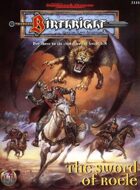

note Skills are simply areas of focus under the main six abilities that give a level-based bonus, but it's the ability scores that are used in the main. It combines elements from all previous editions extremely simplified classes and combat rules (making "theater of the mind" gameplay feasible once again) close to 1st and 2nd edition the magic rules combine a lower-powered version of 3rd's slot system with 4th's ritual casting system and while skills and feats are still present, they are much less prominent than before to the point of being technically optional. In an effort to try and heal the divisions in the player community, they actively solicited players for ideas about the new edition, with an open playtest (which began in 2012 under the production alias of "D&D Next" and ran through the end of 2013). The fifth edition of D&D was released in 2014, as Wizards of the Coast sought to revitalize the brand. Though it sold well at first, fan discontentment with the changes led to many people abandoning the edition, with many switching to Pathfinder (itself a D&D derivative based on the 3.5e rules) leading to a decline of the D&D brand. Indeed, the assumption that players use miniatures on a map is even expressed throughout the core rules, such as movement being described in squares, not feet. Common criticisms of the edition are that it plays too much like a MMORPG, and/or a tabletop miniatures war game. The changes from 3.5e were many overall, its rules had a much greater emphasis on mechanical balance and action than any previous edition. It created quite a big amount of discussion, with haters, lovers, people who don't care and everything in between.

Then came an incremental edition known as 3.5e, which was largely concerned with fixing a few very obvious Game Breakers and Quirky Bards in 3rd Edition. It was a huge hit and revitalized the game, leading to new players aplenty. A major overhaul of the entire rules set, 3rd edition cleared off the crust that had accumulated around 2nd and unified a scattered assortment of rules and procedures into something more coherent. It continued in popularity for a time, but by the late 90s, mismanagement of the company led TSR into bankruptcy.Īfter TSR was bought by Wizards of the Coast (makers of Magic: The Gathering, and now a subsidiary of Hasbro), they published Dungeons & Dragons 3rd Edition in 2000 using the d20 System. In 1989, the group left behind codified the official rules tweaks and unofficial suggestions that had accumulated in the meantime into Advanced Dungeons & Dragons 2nd Edition. In the mid-1980s a corporate power struggle inside TSR caused Gary Gygax to be ousted from the company. Dungeons & Dragons: Chronicles of Mystara.The Temple of Elemental Evil (video game).Baldur's Gate: Tales of the Sword Coast.Dungeons & Dragons (1983) (animated series).Dungeons & Dragons: The Book of Vile Darkness.Dungeons & Dragons: Wrath of the Dragon God.Dragonlance: Fifth Age Dramatic Adventure Game.


 0 kommentar(er)
0 kommentar(er)
